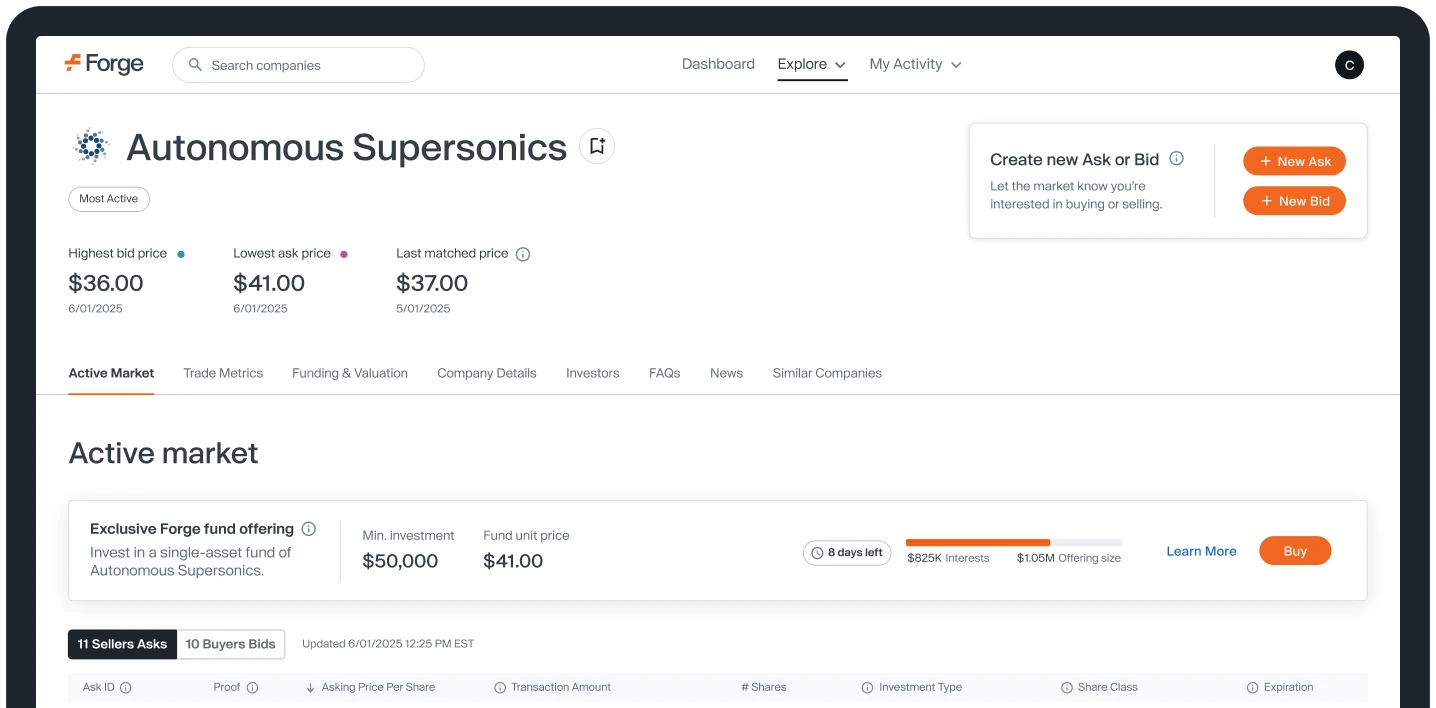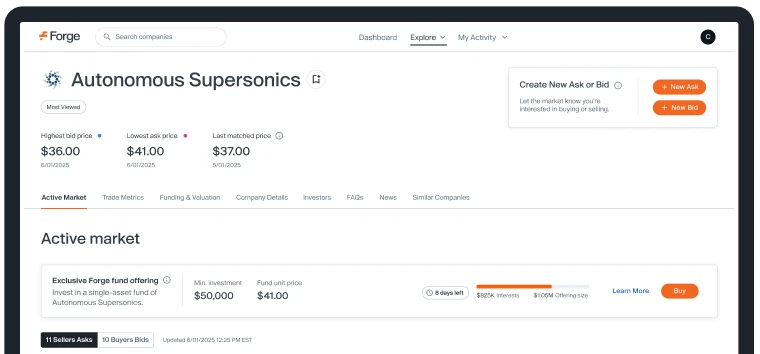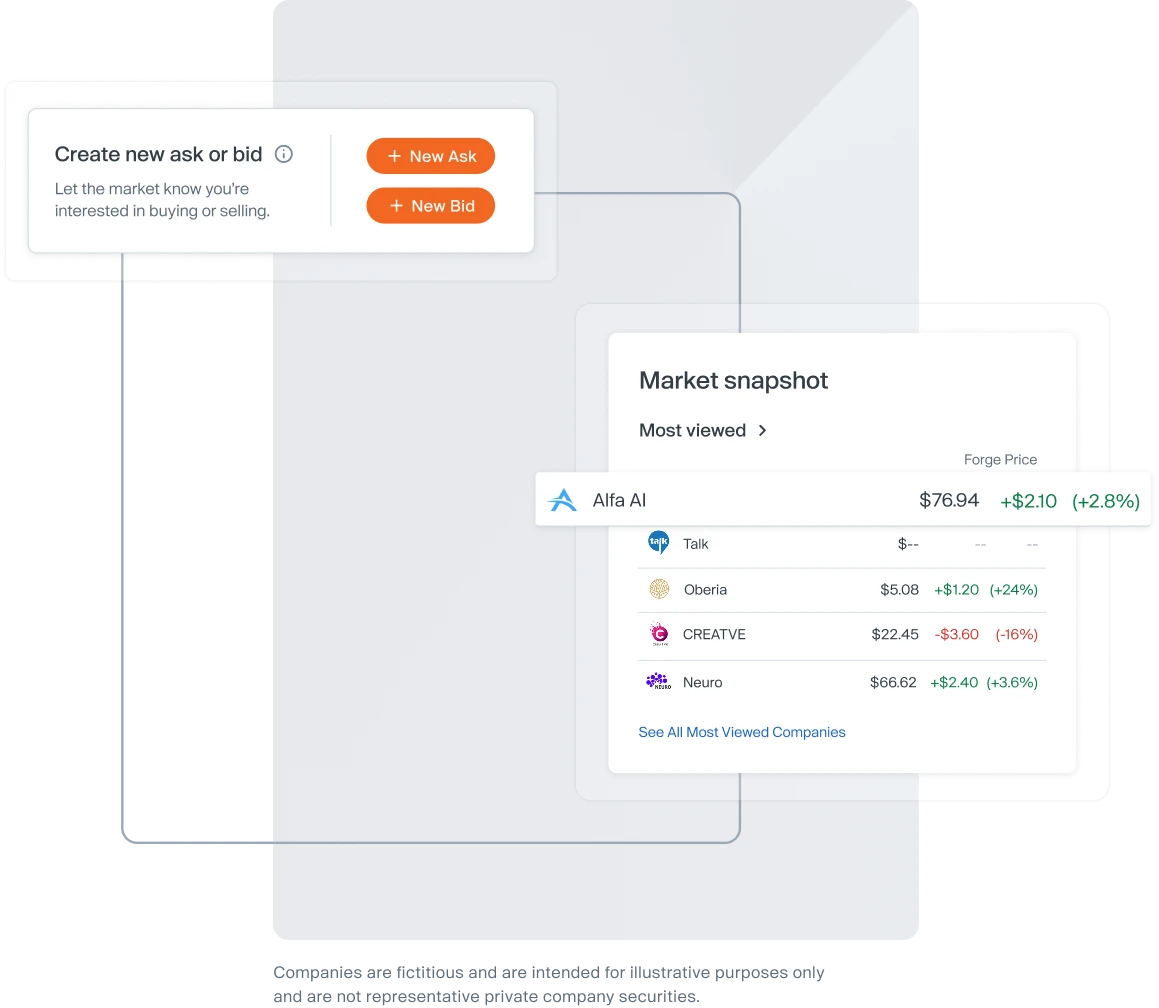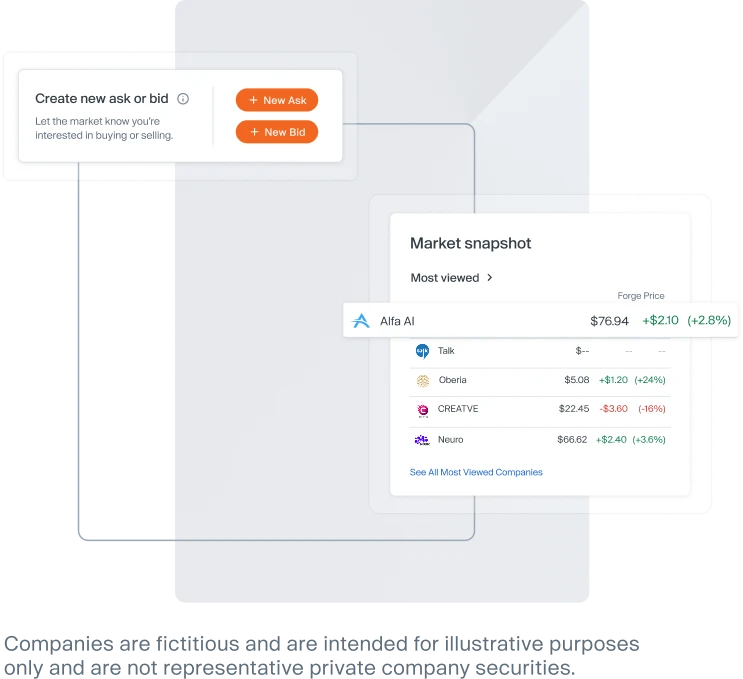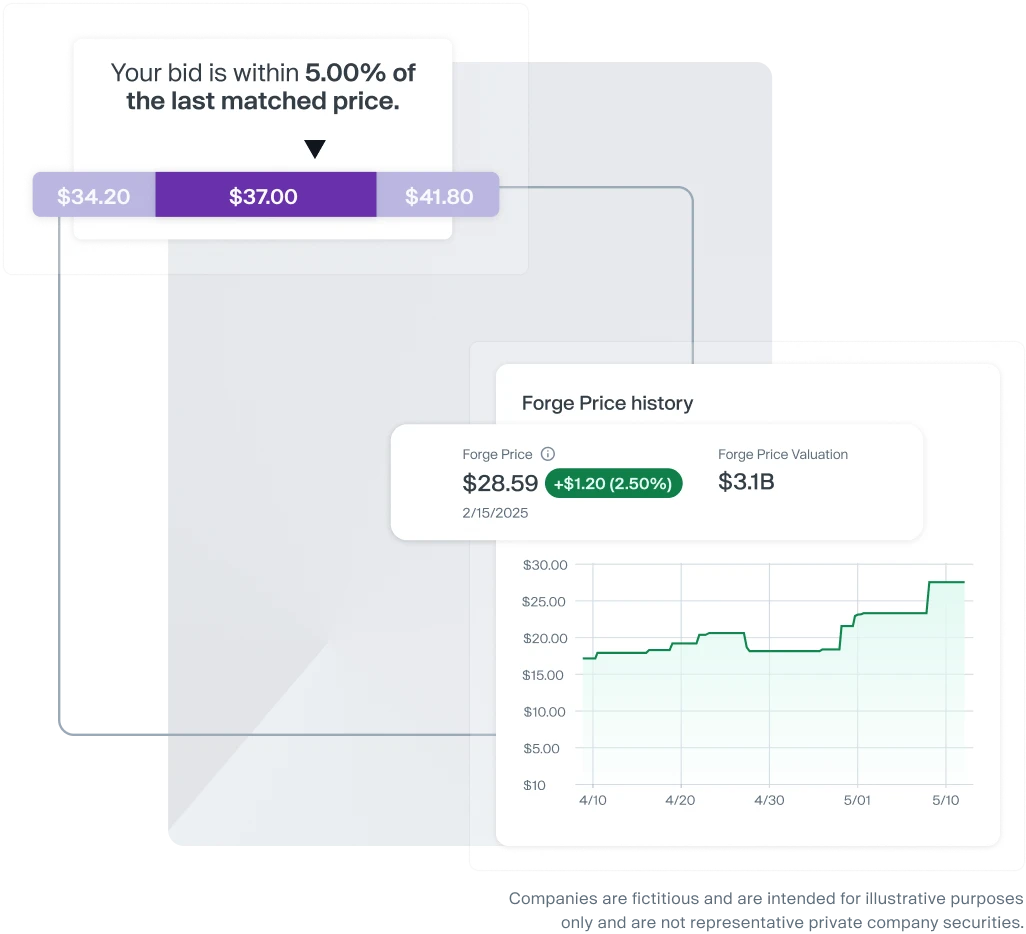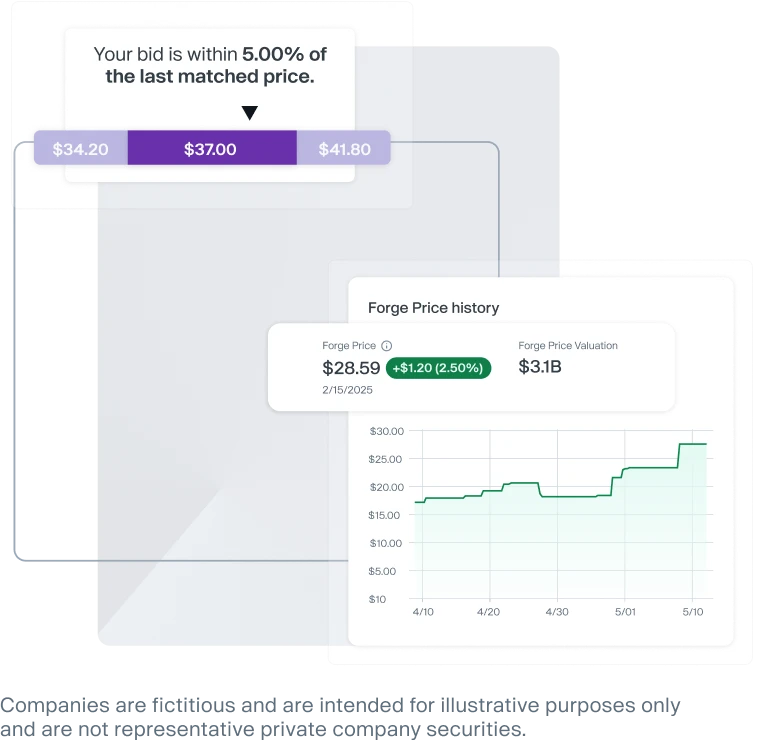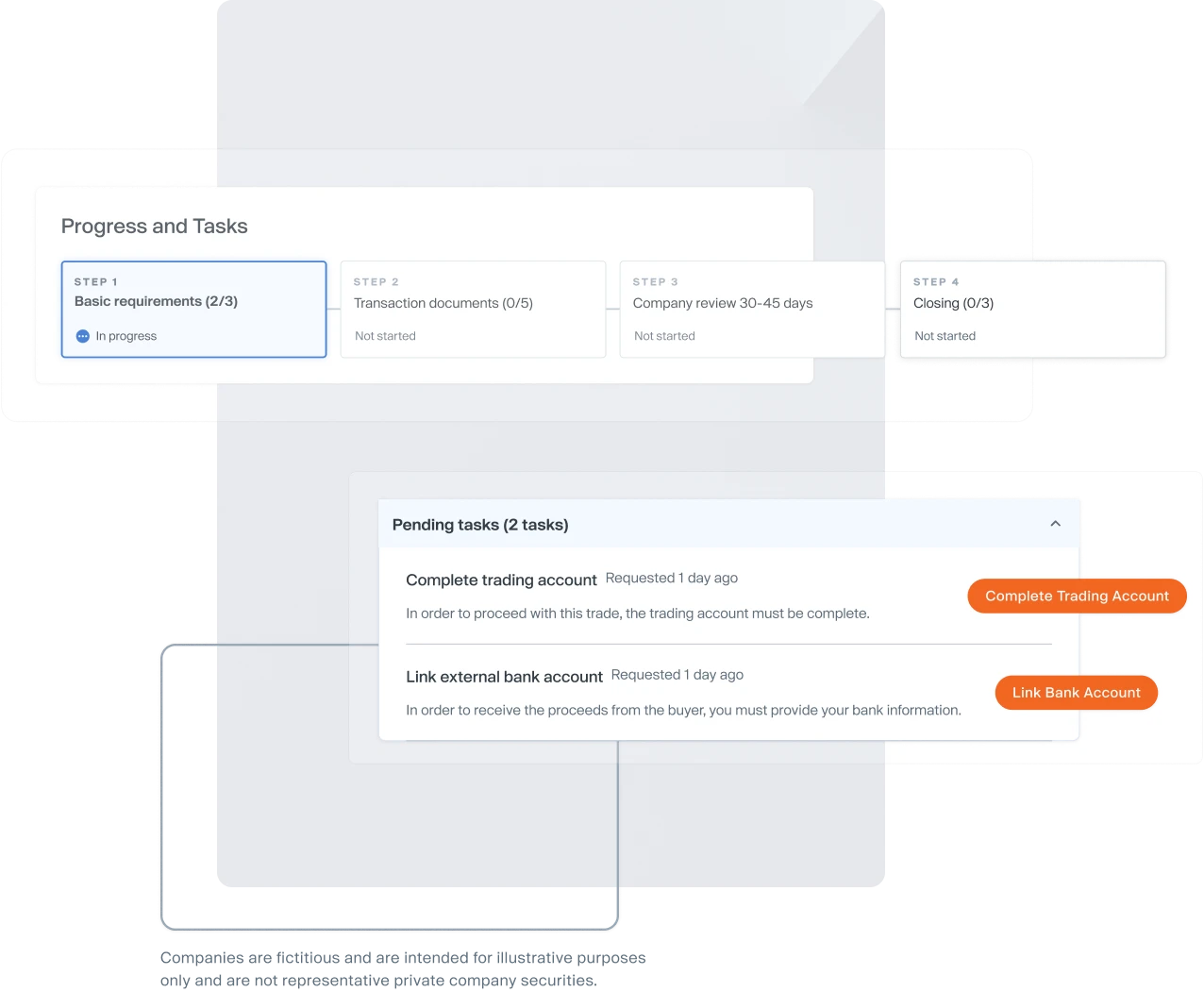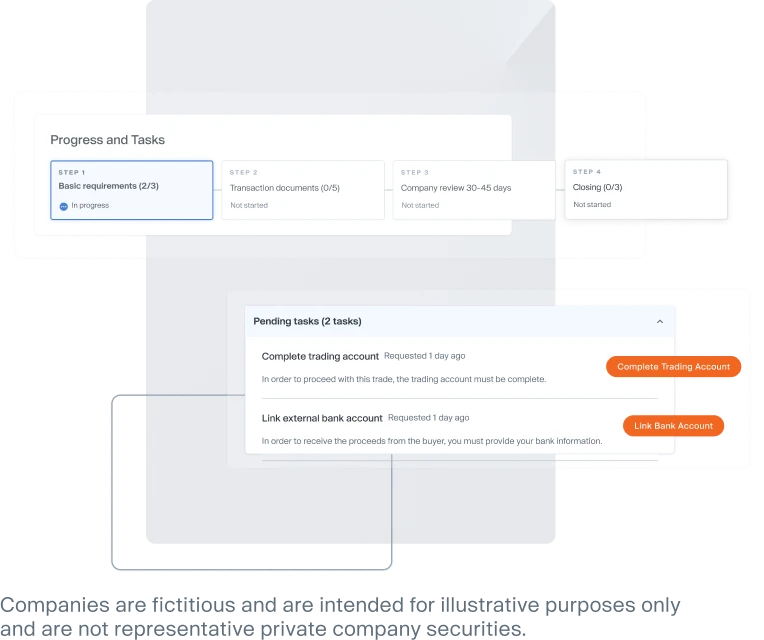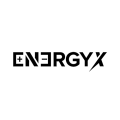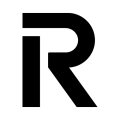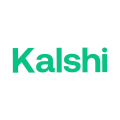This guide addresses key considerations for purchasing private company shares and outlines a step-by-step process for completing a purchase with Forge.
Exposure to late-stage venture backed growth companies
Individual InvestorsEmployee ShareholdersInstitutional InvestorsPrivate Companies Accredited InvestorsSeed & Angel InvestorsAsset Managers & Hedge FundsFamily OfficesVenture Capital FirmsWealth Managers & RIAsWho We Serve
TradingDataLiquidity ProgramsRetirement Individual InvestingForge MarketplaceFind new private company investment opportunitiesBrowse CompaniesInstitutional TradingForge ProTrade private companies with Forge’s institutional brokerage toolForge PriceA proprietary indicative price, calculated daily, for approximately 200 pre-IPO companiesForge DataAnalyze private markets via Forge’s intuitive web applicationForge Private Market IndexMonitor a benchmark for actively traded private companies Forge Accuidity Private Market IndexInvest in an institutionally-managed diversified basket of private companies (QPs only)Liquidity ProgramsRetain and reward employees with company-sponsored liquidity solutions like tender offers and customized programsSelf-Directed IRAForge TrustInvest in private companies and other alternative assets through a tax-advantaged Self-Directed IRAWhat We Do
All insightsReports and highlightsNews and trendsPrivate market educationTips and tutorials Forge Investment OutlookPrivate Market UpdatesIPO calendarPrivate Magnificent 7Emerging trendsPrivate company newsUpcoming IPOsAll guidesPrivate market basicsPrivate shares transactionsValuations, pricing and market trendsSelling in the private marketFAQsGlossaryCompany page and tradesProof of ownershipBid and ask submissionsForge fund offeringsInsights
About UsLeadershipInvestor RelationsPeople & CultureCareers About
Please enter 2 or more characters
Who We Serve
What We Do
Insights
About
Who We Serve
Individual Investors
Institutional Investors
What We Do
Trading
Individual Investing
Institutional Trading
Data
Liquidity Programs
Insights
Reports and highlights
News and trends
Private market education
